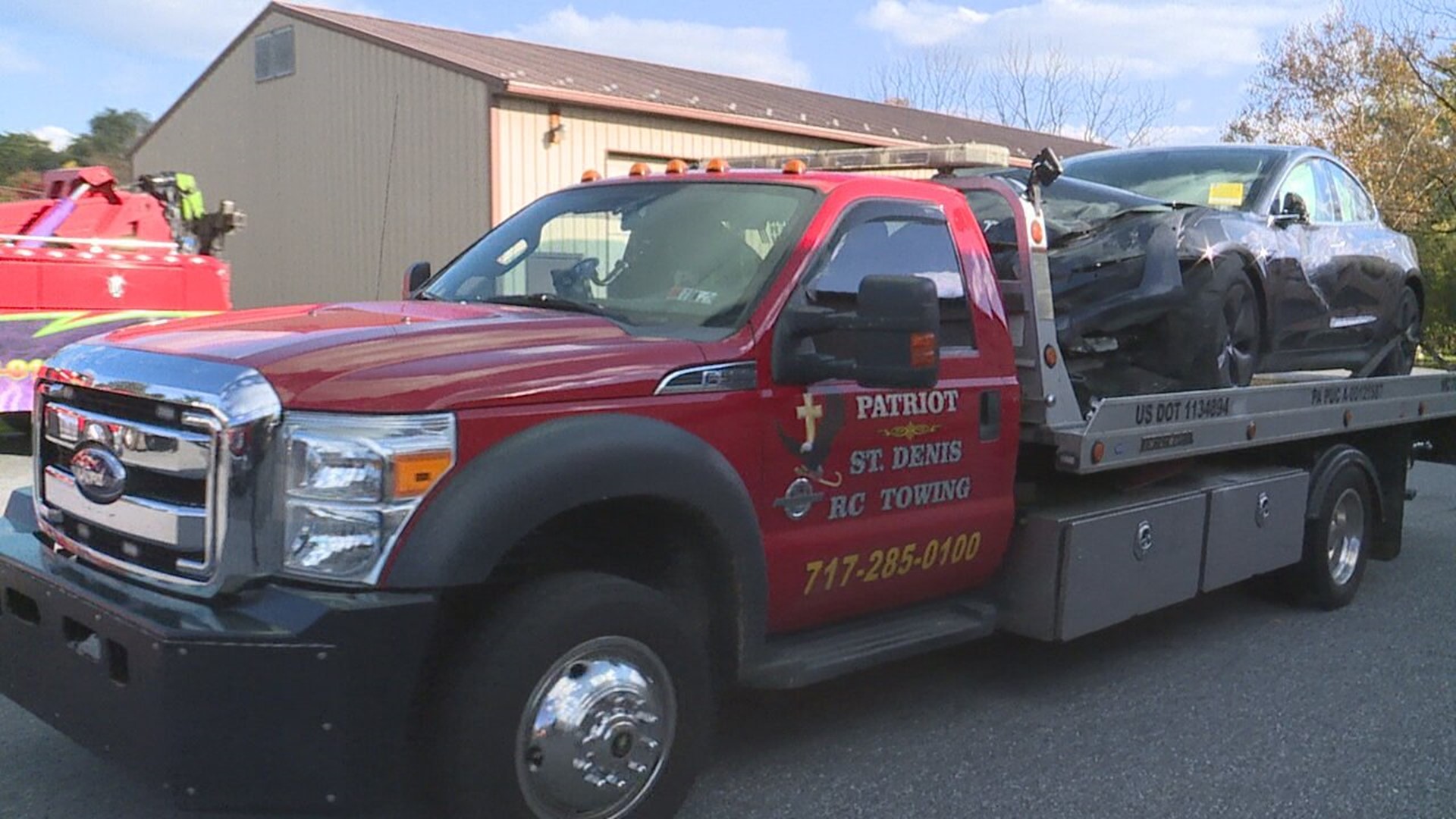LANCASTER COUNTY, Pa. — Towing companies are facing more costs as an increasing number of electric vehicles hit the roads.
Patriot-St. Denis Towing in West Hempfield Township, Lancaster County has had to buy new equipment and make changes to its towing process to service electric vehicle incidents, some of the biggest changes made to their business in 20 years.
"If I were guessing right off the top of my head, [there's] probably around 10 to 12 thousand dollars involved with the whole process," said Randall L. Geissler, president of Patriot-St. Denis Towing. "This is a whole new thing that we’re having to do."
Geissler says many of the new costs have to do with safety precautions involved in dealing with electric vehicles and their fire risks. On top of extra inspection steps involving the Energy Security Agency (ESA), they've had to also invest in thermal cameras and concrete blocks to create an isolation storage area for at-risk EVs determined by the ESA.
In February, two EVs involved in a vehicle fire in Manheim Township, Lancaster County were put into similar isolated storage and monitored by a towing company for 30 days, in case they reignited.
"They’re just more complicated, there’s more risk it seems like associated with the EVs," said Geissler. "It’s always about liability, did we do due diligence to check this vehicle out, make sure it wasn’t creating a problem."
It’s a big time and money investment towing companies now have to make into electric vehicle safety precautions that are still being developed.
"Right now we don’t have all the answers, we don’t have here’s the perfect thing, this will work 100% of the time, every time," said Geissler. "You’re constantly looking at different things that are on the market, what other countries are doing and seeing what’s working for them."
In 2013, there were just over 1,653 electric vehicles in Pennsylvania. Nearly 10 years later, that number has skyrocketed to 42,785 in 2022. It’s a trend towing companies know they will have to continue to adapt to, to best serve the people who need them.
"We expect that this is going to continue and everyone is trying their best to try to prepare with the resources that they have," said Geissler. "It’s about serving. It’s serving the community and helping where we can. It’s not always just about how much money you’re making."

